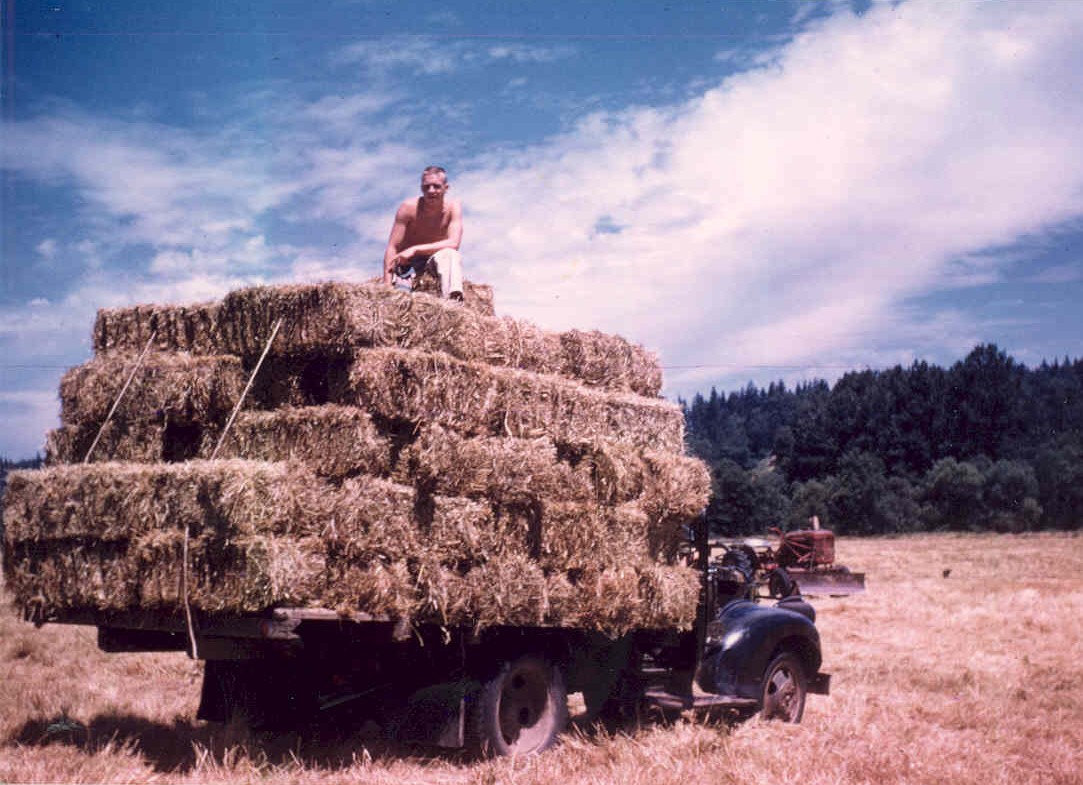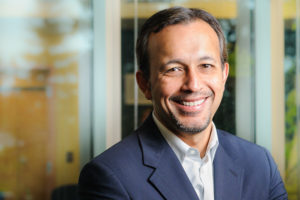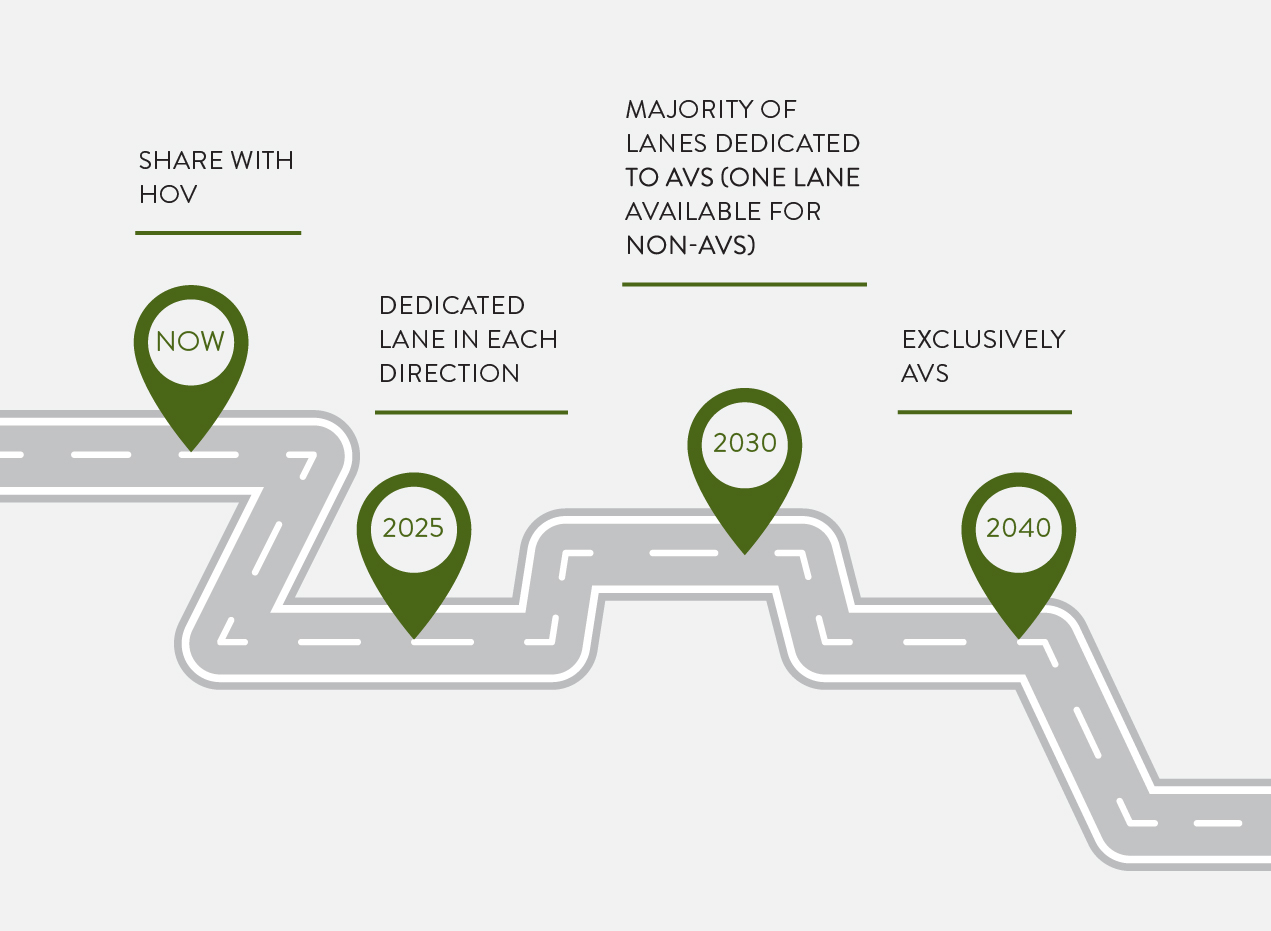Sometimes a community comes together to create something and sometimes its to honor an important member. Both of those things happened this Halloween in an explosion of creativity from the Chambers family as they, their friends and neighbors, built Daigon Alley in their driveway in Ballard, a Seattle neighborhood. Jennifer Chambers, Madrona’s long term Fund Administrator and Jonathan Chambers, her creative, techy husband, and their two girls spearheaded this epic project which came together in the nick of time to host thousands of people on Halloween. And they raised money for Pancreatic Cancer Research in Honor of Matt Bencke, the vibrant, young CEO of Mighty.AI who had friends throughout the Seattle technology scene and died earlier in October.
Tag: Seattle
The Rise of Autonomous Vehicles and What It Means for Our Interstate Highways
As automakers and technology companies begin shipping and operating autonomous vehicles, legislators, regulators, and transportation planners need to examine and consider how autonomous vehicles and other innovations such as car-sharing and ride-sharing can be integrated in large-scale transportation planning.
We published a report last year that proposed a vision for converting I-5 into an autonomous vehicle corridor at some point in the future. This year, we updated that report based on new market conditions to be more specific and more aggressive as the roll out for autonomous vehicles has sped up beyond our expectations.
Travel between Vancouver and Seattle can be long, tedious, and dangerous, but autonomous vehicles offer a solution to decrease traffic accidents (and resulting congestion), decrease travel times, and help travelers recover valuable productive time. These vehicles will likely to be part of ride-sharing fleets and other travel services that will benefit the entire population and lower the cost of transportation for everyone.
In our updated 2017 report we propose to convert I-5 between Vancouver and Seattle into an autonomous vehicle corridor by 2040. We suggest a phased in approach that begins with allowing autonomous vehicles to share the HOV lanes immediately and progresses to devoting two lanes to autonomous vehicles (which will create space for three autonomous vehicle lanes). Finally, by 2040, we believe all lanes of I-5 will be dedicated to autonomous vehicles during peak travel times.
By actively embracing and planning for a future with autonomous vehicles, Vancouver and Seattle can be an innovation leaders to cities and regions around the world, serving as an example for how to proactively and responsible incorporate this important cultural and technological change into their regional city and transportation planning.
Madrona Labs Adds CTO, long time entrepreneur and big data, machine learning, computer vision technologist, Jay Bartot
New Role Brings Deeper Level of Technology Expertise to Madrona Venture Labs Team
We are thrilled to announce that Jay Bartot has joined our Madrona Venture Labs team as Chief Technology Officer. Jay has been the cofounder of four successful startups, each of which leveraged big data and machine learning to provide targeted services to consumers and businesses. These startups include Farecast, where Jay and I partnered to change how consumers purchase airline tickets by using algorithms to predict airfare price fluctuations.
Joining Madrona Venture Labs is like a homecoming for Jay, as Farecast was incubated at Madrona Venture Group and he worked closely with Madrona’s Managing Director Matt McIlwain and Venture Partner Oren Etzioni in the earliest days of the company’s formation. At Farecast, Jay and I formed a highly productive engineering and product partnership and we aim to bring that same collaborative spirit to our Labs culture.
Jay’s other startups include AdRelevance, acquired by Media Metrix, Medify acquired by Alliance Health and most recently Vhoto, acquired by Hulu. Jay brings a wealth of deep technical and engineering leadership experience to our team and in support of our spinout founding teams. With Jay onboard, we will look to explore new, innovative technical startup ideas that leverage his experience in machine-learning and data-mining.
Jay is one of the most creative and inventive engineering leaders I know and we could not be more excited about our future with his influence and leadership.
DiscoverU – Tom Alberg’s Advice to High School Students
Note: As part of The Road Map Project’s DiscoverU Campaign to get high school students to think about higher education, Madrona hosted more than 30 students from Renton High School to learn about jobs in the startup world. Tom Alberg shares this post as his thoughts for students who are thinking about working in the industry.
Here is a link to the DiscoverU website – www.discoveruwa.org
Where did you go to school?
I graduated from Ballard High School in Seattle. It wasn’t the best high school in the city. All the teachers weren’t great but some were amazing. I was OK in math but not great. I got a C in geometry in high school. But some teachers encouraged me and I decided to work hard to improve so I could get into college.
I majored in government in college and got pretty good at math which I have to use every day in my work.
What do you do at work?
I am a partner in a venture capital firm in Seattle. We don’t have thousands of employees like Boeing. We also don’t build airplanes. But we help create new businesses. Companies that someday might grow to be a Boeing or a Microsoft or an Amazon.com.
What do you invest in?
We invest in people — people who have a dream about starting a company and building it into a success. Many of the people we invest in are young – under 30. I call that young.
Many are first or second generation immigrant Americans. Either they or their parents were born in a foreign country. The CEOs of at least fifteen of our fifty companies are first or second generation immigrants.
Every day someone comes into our office with an idea for a new company. We meet with over 500 every year.
Today we have over 60 active startup companies we have invested in and are working with to help them grow.
What does it take to start a company?
First, you need an idea to start a company. Hopefully, it’s a product or service that people will want to pay for. Some years ago, I met a young person who had an idea about selling books on the Internet. His name was Jeff Bezos and the company was Amazon.
Everyone has an idea for a new business. Some are good and some are not as good, but give it a try. How about delivering lunches for $11 from restaurants to people in their offices. We have one of those. It’s called Peach. You may have a better idea. Is there something you are passionate about? Maybe there is business idea involving your interests.
Do you need a team?
You need to be able to build a team. One person can’t do it all. This is the same as a winning basketball or football team. You need people with different skills who can work together. You do that every day when you play a sport or complete a group project – you know who is good at what and sometimes you push your friends to do stuff they don’t like. We can all learn to do new things
You need to be persistent even when people tell you that your idea or even you are crazy.
Does it take hard work to build a company?
To build a successful company you need to work hard and learn. Jeff Bezos had done a lot of work to analyze the book market and the Internet. He was open to new ideas. He also listened and learned as built his company. The first company name he picked was Abracadabra but someone told him it sounded like Cadaver so he renamed it Amazon. You need to learn from others.
I visited the University of Washington recently and met with two young students who are trying to launch a company that is using virtual reality to visualize organs inside the human body. I was able to grab a heart, rotate and examine its insides – all visually of course. They are working with local doctors and hospitals to test it. They call their company CadaVR – I thought it was pretty cool.

What size are your companies?
Our companies start out small. One or two people working hard with an idea. They don’t need a lot of money at first. If they have a product or service that others want to pay for, then they will need more money to grow. And they come to see people like us. Or ask their friends and co-workers to invest.
What do some of your companies do?
Our companies include Redfin, which sells homes through the Internet, a restaurant delivery business, two companies that are developing products for virtual reality, a drone company that lets people at home pilot a drone from afar, a company that will deliver gasoline to your car in a workplace parking lot or mall, a company that helps you take care of your pets, and a company that sells men’s clothing over the Internet that is tailored to your measurements.
We also start companies in our Madrona Labs. Labs has six full time employees and is run by a UW grad. We’ve been lucky to work with him on multiple companies from the time was an undergrad. He started companies while still at the UW to make some money. He then went on to run and start other companies and now he is working with a team to come up with a lot of ideas to test out.
Who do your companies hire?
Our companies hire lots of UW grads. Some majored in computer science. Other pursued business courses, sales, marketing, graphic design. It takes all kinds of skills. I would love to have you major in computer science but whatever your interest, work hard at it, be persistent.
How do you see the future?
You are growing up in an exciting time. New inventions are happening every day. Some are being invented at big companies. Like Amazon. Others like Facebook are big now but started in a dorm room. There are hundreds of small companies right now in Seattle that could be the next Amazon or Facebook.
Whether you are interested in a big company or a small startup, there will be lots of opportunities for you. For a good job, however, you are going to have to finish high school. And increasingly jobs in the future will require that you go to college or to a community college to learn specific job-related skills.
Because of all the opportunity I see for you, I would be happy to be starting over.
CloudCoreo Joins the Madrona Family
(L-R Jason Needham, CMO; Paul Allen, CTO; S. Somaseagar, Venture Partner; Tom Hull, CEO)
It is a lot of fun for me to announce our investment in CloudCoreo and to welcome the team to our Madrona family. Again.
We have had a great experience working with Tom Hull and Jason Needham through the Union Bay Networks journey, and we have been super impressed by Paul Allen’s insight, understanding and passion about how to bring together deployment and monitoring for security and compliance as one closed loop system. We believe this is essential for businesses to manage their cloud operations as cloud infrastructure continues to change significantly.
As the cloud infrastructure world embraces micro-services and containers to build and deploy at-scale distributed services, a comprehensive devops solution that enables companies to automate and secure the entire cloud operation across multiple cloud and hybrid cloud environments is a must-have solution. CloudCoreo is doing just that and has already proven itself to be an invaluable product for many of its early customers.
We are thrilled to back the compelling vision of this leadership team and be part of a world-class cloud infrastructure and operations focused startup in Seattle, the “Cloud Capital” of the world. All of us at Madrona are jazzed at the potential of what is possible here.
Additionally, we are excited to partner with the folks at Divergent Ventures, Aritstos Ventures and notable angels that provide a variety of complementary experiences, expertise and connections as we embark on this journey.
Looking forward to a fun, impactful and at-scale journey with the CloudCoreo team!
Why Madrona Invested in Accolade
World-class teams, compelling problems to solve and sustainably differentiated solutions. These are ingredients for a promising venture investment. At Madrona, we usually focus on early-stage companies that are differentiated through information technology and based in the Pacific Northwest. We believe, now more than ever, our strategy will help build a next-generation of leading companies in the region.
So, why did Madrona participate for the first time in the Series E round of Accolade? Accolade is an on-demand healthcare concierge for employers, health plans, health systems and the people they serve. Founded nine years ago in Pennsylvania, the company attracted Raj Singh as CEO last year. Raj has already brought together a strong group of existing executives with some former Concur executives, including CTO Mike Hilton, to build the world-class Accolade leadership team based primarily in Seattle.
We believe, now more than ever, our strategy will help build a next-generation of leading companies in the region.

Raj and Mike co-founded Concur in 1993 before Madrona even existed and played leadership roles throughout, culminating in an $8.3 billion sale to SAP in 2014. Madrona has maintained a close working relationship with many members of the Concur executive team. Raj is on the board of Madrona-backed companies Apptio and Amperity. We have seen first-hand the value Raj and Mike provide entrepreneurs in operationally scaling companies. They are experts at applying innovative technologies to improve customer experiences in a cost-effective manner.
. . . the Accolade team has the opportunity to be a very large player in the evolving healthcare landscape.
Healthcare is a massive market and Accolade has many opportunities to apply mobile and data-driven capabilities to their existing concierge solutions and scale their personalized service to more healthcare consumers. As the healthcare industry continues to evolve to an outcome-per-patient model with increased use of medical records and data, patients need guidance and advice more than ever. With technology enabled services, employers and their families can make better health care choices benefitting their own lives. Accolade has a distinct model for remaining people-centered while leveraging modern technologies and techniques.
We believe the Accolade team has the opportunity to be a very large player in the evolving healthcare landscape. By doing so, they can build another leading technology company here in Seattle. And, we have found that Madrona can add the most value when teams are based in region. The combination of a proven, Seattle-based team and a compelling business model convinced us that investing at a later stage in Accolade was the right fit.
Julie Sandler on Why Seattle is the Cloud Capital of the World–and a Great Place for Startups
Inc.com – Seattle is the world’s cloud capital — and not just because of its overcast winter weather. During a panel at this month’s iCONIC event in Seattle, Julie Sandler, principal at Madrona Venture Group, said that the area was the world’s cloud capital, with two of the industry’s biggest players, Amazon and Microsoft, in residence.
I’m always eager to learn more about the cloud — and also about the Seattle area, which has been my home for the past year and a half. So I followed up with Sandler to ask what (besides the presence of the two big cloud players) makes Seattle the cloud capital, and what that means to entrepreneurs.
Alberg and Li on Driverless Cars and Ride Sharing as Part of Seattle’s Transportation Solution
Only a few years ago, driverless cars were a pipe dream. Because of technological challenges and regulatory obstacles, experts believed that driverless cars would not be feasible for decades in the future, if at all. Nevertheless, in a surprisingly short period of time, we’ve observed rapid innovations which are bringing driver assisted and autonomous vehicles to our roads today. In fact, Google just brought their autonomous car test program to Kirkland. Continue reading “Alberg and Li on Driverless Cars and Ride Sharing as Part of Seattle’s Transportation Solution”
